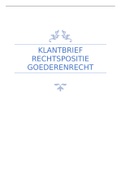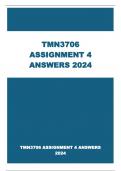Samenvatting
Summary and Lecture Notes + Exam Prep Quantitative Research Methods 2024
This is a summary of a student who didn’t know anything about statistics but now understands it! It’s a summary with basic lecture notes with extra added notes to easily understand it better, screenshots and an exam preparation with the answers. Good luck! ;)
[Meer zien]






